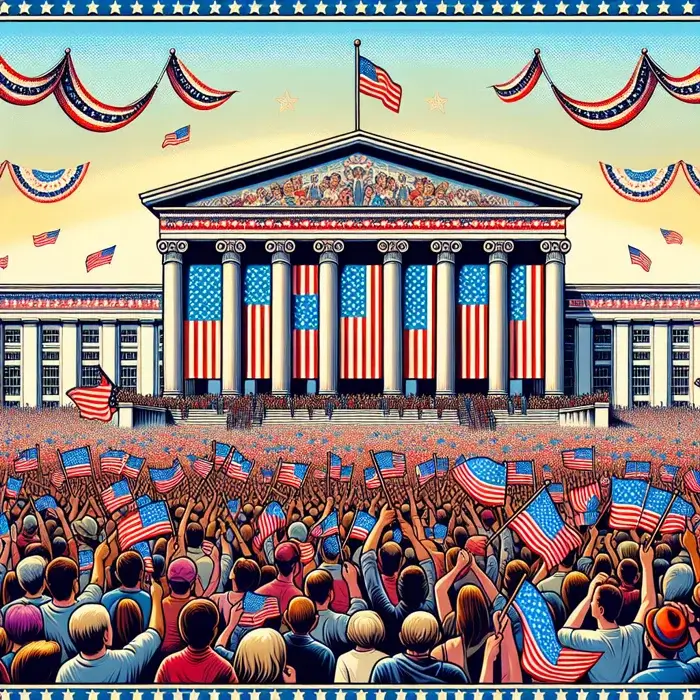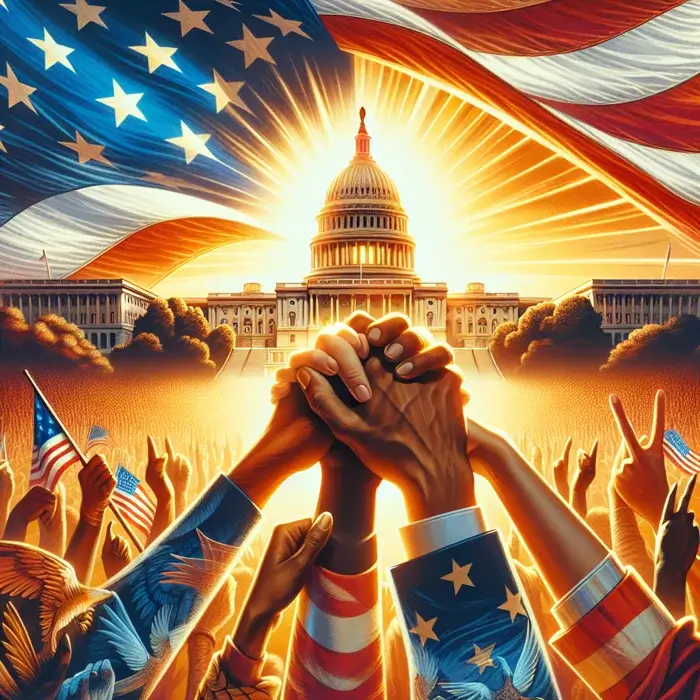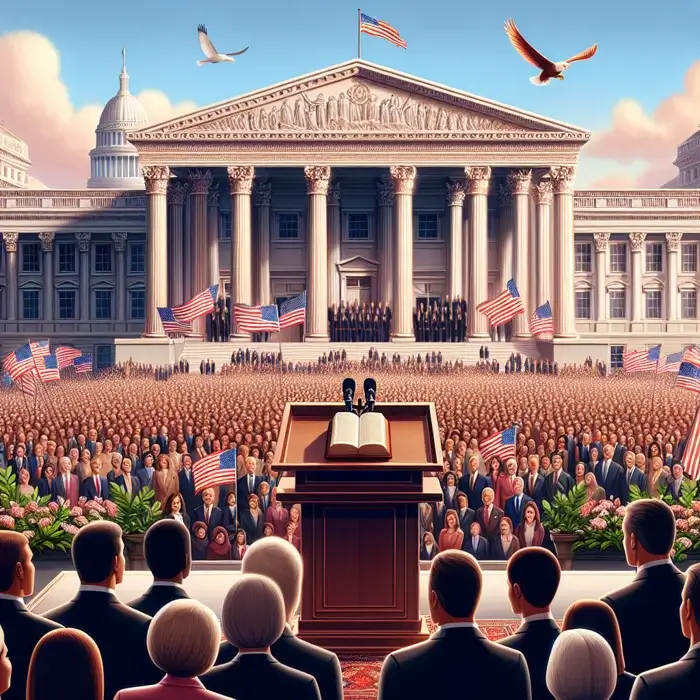Inauguration Day in United States
Use our holiday API to get the exact date of Inauguration Day in United States in every year.
Introduction

Examinations of the American Political Calendar include a big date-Inauguration Day. The day indicates the start of a four-year term for the President of the United States after having been elected in a national presidential election. The ceremony for the inauguration welcomes a formal transfer of power and reaffirms the nation's democratic principles and resilience in governance.
When Is Inauguration Day Celebrated?
Inauguration Day is held every January 20 for the day, or on January 21 when the 20th happens to fall on a Sunday. It takes place every four years following the presidential elections held in November. The date of January 20 was set as the official day for inauguration by the 20th Amendment to the U.S. Constitution, ratified in 1933.
The History and Significance of Inauguration Day

Inauguration Day is rooted in history from April 30, 1789, when George Washington took the first-ever presidential oath at Federal Hall, New York City. March 4 was fixed for the inaugural, but the 20th Amendment lopped it off to January 20th for the sake of shortening the "lame-duck" period for outgoing presidents. This was especially critical since the new presidential term would, thus, roughly coincide with the new Congress session.
Traditions and Activities on the Day of Inauguration
Inauguration Day is steeped in traditions, including both formal rites and celebratory activities. The central event is the taking of the oath by the President-Elect in the presidential oath of office by the Chief Justice of the Supreme Court. It is performed typically on the steps in front of the U.S. Capitol in Washington, D.C.
Inauguration Day is marked by an oath, which is often followed by an inaugural address from the President: a speech about how he/she sees the nation and what he/she intends to do to improve it. The inaugural address often serves as an index against which the priorities and pledges of the administration are measured.
Hence besides the formal ceremony, the day is full of parades, balls, and public merriment. One of the biggest events during this day is the inaugural parade, which is headed down Pennsylvania Avenue, from the Capitol all the way to the White House, showing the diversity of the nation in culture and region.
What's It Like on Inauguration Day Going: Closings and Openings

Inauguration Day is not considered a public federal holiday, thus it does not have an automatic state-wide closing. However, it does become a public holiday in Washington D.C. This means that most federal employees from outside the D.C. area might have the day off from work. Schools and other non-essential government services might also close.
Banks and businesses throughout the rest of the U.S. are usually business as usual; however, may experience some disruptions in the D.C. metro area due to crowds and security measures. Most of the museums around the nation's capital are open for business to attract tourists on the day for the historical significance it holds.
The Conclusion
It is called a day of celebration in America, as far as democracy is concerned, and it is held as evidence in letting power pass from hand to hand without causing a stir. It provides a day for the witnessing of history in the making by the whole nation. Each president conveys the beginning of a fresh chapter and draws the line marked by every American leader. For the one who experiences it through the screen or the one who comes out and lives through it, it remains one of the nation's most striking symbols of hope and commitment for a long time yet.
It's a time to consider the history of Inauguration Day. If ever in Washington D.C. during that momentous time of year, consider taking part in the intricate tapestry of ceremonies and celebration which comprise this defining moment in public holiday.